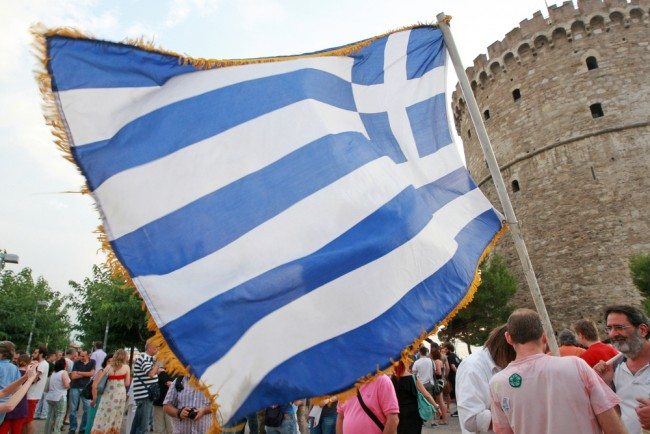The Guardian reports that Greece’s eurozone partners will have to find more funds to meet Athens’ short-term financing needs without the IMF’s involvement, raising questions about whether the outline €86bn (£60bn) bailout thrashed out earlier this month will prove workable.
As the Greek prime minister, Alexis Tsipras, battled to win the backing of his radical Syriza party for the austerity programme demanded by the rest of the eurozone, an IMF official, speaking from Washington, said the fund would not get involved until there is “an explicit and concrete agreement between Greece and its eurozone partners on how to provide debt relief”.
The IMF insisted that it also expects tough economic reforms from Athens in return for a reduction in its debt burden. “There is a need for difficult decisions on both sides. One should not be under the illusion that just one side can fix the problem,” the official said.
Meanwhile, the IMF’s team in Athens, which is helping draw up a third bailout, would not “sit on the sidelines”, the official said. But it will not sign up to any formal support programme for the troubled country. “We will be participating actively in policy discussions over the coming weeks.”
On Wednesday, Christine Lagarde told the IMF’s board, made up of representatives of its member countries, that an IMF team should be sent to Greece. But the official said: “The board would not support a scheme that did not meet medium-term sustainability.”
Greece’s debt-to-GDP ratio has shot up to 175 per cent, from the 120 per cent level when it first received a bailout from the “troika” of the IMF, the European Central Bank and the European commission in 2010.
News of the IMF board’s tough line emerged as Tsipras challenged members of Syriza to back the decision to sign up for fresh spending cuts and reforms demanded by the country’s creditors.
At a meeting of Syriza’s national council in Athens on Thursday, Tsipras offered party members two options: an internal “referendum” this Sunday, to consider the terms of the deal hammered out earlier this month; or an extraordinary party meeting in September. By a show of hands the meeting opted for the latter.
Tsipras managed to pass the latest austerity measures with the backing of opposition MPs, allowing talks on a new bailout to begin. But he is yet to win the support of many in his own party.
Speaking at the Syriza gathering in a former cinema, Tsipras reiterated the fact that caving in to the country’s creditors was “not of our choice”, but the only alternative was to leave the eurozone.
The details of the third bailout are yet to be finalised but the IMF appears to be challenging Greece’s other creditors, led by Germany, to soften their opposition to substantive debt relief.
The tough deal hammered out by eurozone leaders earlier this month held out the promise of debt restructuring if Athens passes new economic reforms, but provided no details.
The IMF’s own debt sustainability analysis, published in the aftermath of the negotiations between Tsipras and his eurozone partners earlier this month, suggests that the country’s debt burden will quickly become unmanageable without a lengthy moratorium on repayments, perhaps of up to 30 years, or a reduction in the face value of the debt. The IMF official said the fund stood by that analysis.
With talks only just getting under way in Athens – and particularly given the IMF’s decision to avoid getting involved immediately – analysts say it is increasingly unlikely that a deal can be done in time for 20 August. This is when Greece is due to make a €3.4bn repayment to the European Central Bank.
Observers have been expecting Greece to seek a short-term bridging loan from its eurozone partners to cover the ECB payment. But without IMF involvement, the amount of funding needed in the coming months is likely to be considerably higher.
The IMF’s role in the eurozone bailouts has been controversial since the first rescue of Greece in 2010. However, the European commission and the ECB felt the credibility of the bailouts was boosted by the presence of the IMF, due to the tough conditions the fund attaches to financial aid.
Asked whether it had been a mistake to get involved in the first place, the IMF official said: “We learn as we go along, in evolving circumstances, and the experience that we have will be embedded in any new discussions that we have. This is, of course, one of the reasons why we say this requires difficult discussions on both sides.”


